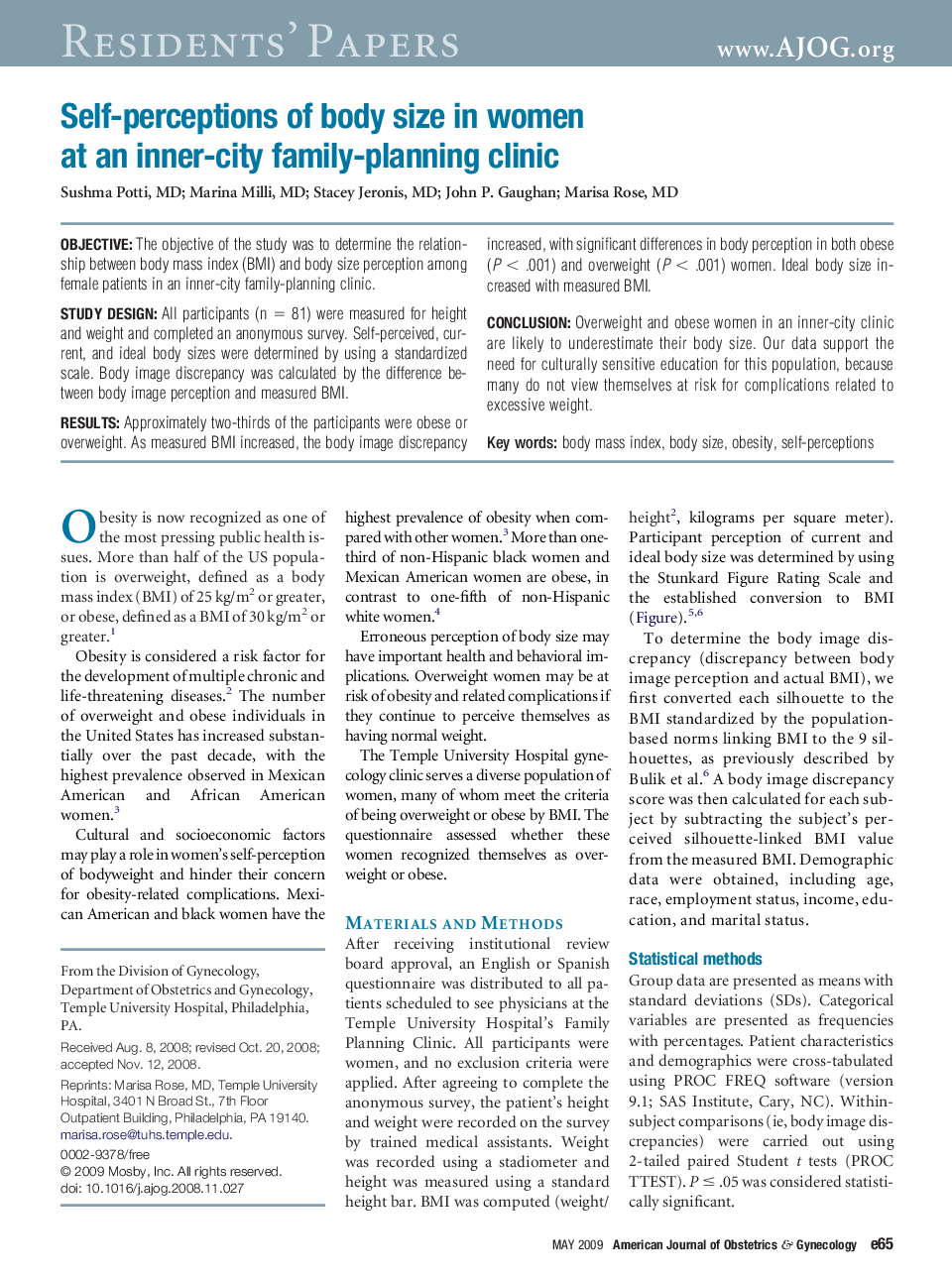| Article ID | Journal | Published Year | Pages | File Type |
|---|---|---|---|---|
| 3437426 | American Journal of Obstetrics and Gynecology | 2009 | 4 Pages |
ObjectiveThe objective of the study was to determine the relationship between body mass index (BMI) and body size perception among female patients in an inner-city family-planning clinic.Study DesignAll participants (n = 81) were measured for height and weight and completed an anonymous survey. Self-perceived, current, and ideal body sizes were determined by using a standardized scale. Body image discrepancy was calculated by the difference between body image perception and measured BMI.ResultsApproximately two-thirds of the participants were obese or overweight. As measured BMI increased, the body image discrepancy increased, with significant differences in body perception in both obese (P < .001) and overweight (P < .001) women. Ideal body size increased with measured BMI.ConclusionOverweight and obese women in an inner-city clinic are likely to underestimate their body size. Our data support the need for culturally sensitive education for this population, because many do not view themselves at risk for complications related to excessive weight.
